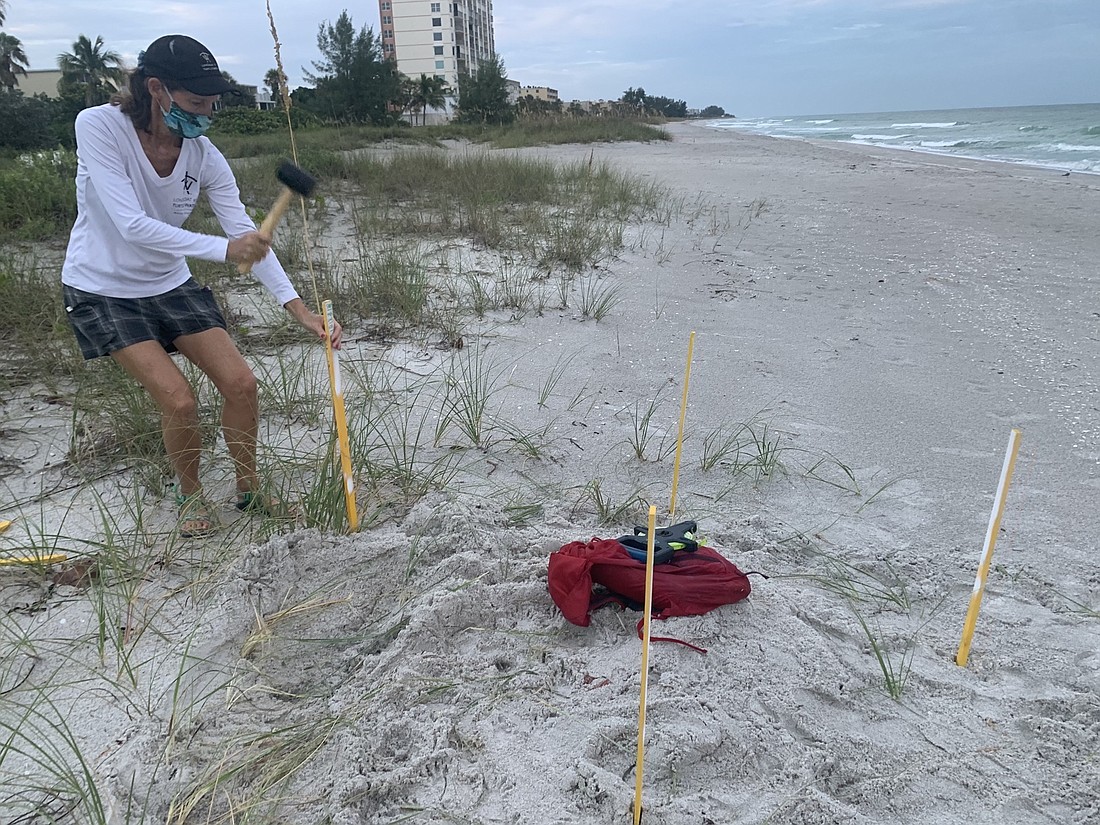- December 12, 2025
-
-
Loading

Loading

The town of Longboat Key held a virtual workshop Thursday morning to discuss proposed changes to its sea turtle protection requirements.
Planning, Zoning and Building Director Allen Parsons led the meeting from the chambers inside Town Hall using Zoom. The meeting had as many as 26 people participate virtually.
Parsons’ presentation Thursday morning was similar to the one he had delivered Nov. 9 before the town commission. He said the town has worked with the U.S. Fish and Wildlife Service, the Florida Fish and Wildlife Conservation Commission, Mote Marine Laboratory and Aquarium, Sea Turtle Conservancy and Longboat Key Turtle Watch on the proposed recommendations.
The town’s current sea turtle protection requirements go into effect each year during nesting season from May 1 through Oct. 31.
“It has an overall intent to protect the nesting females and hatchlings along the beach in the town,” Parsons said of the town’s current rules.
Adjusting the lighting standards of new or existing developments are among the proposed changes. Town staff is recommending the change to the percentage amount of light that is allowed to be transmitted from 45% to a recommended value of 15%. If implemented, the change would be mandatory for new construction or replacement windows.
“From what we’ve heard from the installations, the percentage of window tinting doesn’t cost any more than the 45% window tinting,” Parsons said. “There are other benefits such as energy conservation.”
A beachfront single-family homeowner who participated in the meeting disputed Parsons’ claim that window tinting would cost the same amount as regular windows. She said it was more expensive.
Parsons said town staff would follow up to verify if there would be any additional costs for the tinted windows before the town commission considers any kind of ordinance.
Longboat Key Turtle Watch Vice President Cyndi Seamon spoke about the new tinted glass her beachfront condominium installed a few years back.
“We've had plenty of people come into our condo in daytime and nighttime and no one has commented how dark it is,” Seamon said.
The town also wants to make the use of turtle-friendly exterior light bulbs mandatory for residents and businesses.
The reason for the proposed changes is because of Longboat Key’s high number of turtle disorientations. Since 2017, the town has had 487 turtle disorientations. During that timespan, Longboat Key’s total disorientations are the second-highest number among Florida municipalities.
Disorientation happens when artificial lighting disrupts the ability of adult sea turtles or hatchlings to find their way to nesting sites or back to the surf. Parsons discussed why artificial lighting can disorient to sea turtles.
“Both adult turtles and hatchlings have an inborn tendency to move in the brightest direction, so they instinctively crawl away from darker dunes and vegetation toward the bright open horizon of the ocean,” Parsons said. “And, so any kind of lighting is what the sea turtles are generally trying to orient themselves towards.”
Longboat Key’s disorientation rate is also high compared to nearby areas. Parsons said he wasn’t exactly sure why Longboat Key’s rates are higher, but said there are a combination of factors.
“From the research that we’ve done, there’s nothing absolutely clear about that,” Parsons said of the town’s high rates. “Comparing how low the disorientation rates are on Casey Key, which also has an awful lot of sea turtle nests over the past four years, maybe [it’s] something just with the general ambient light in the area, but that’s a great question.”
Before any changes can take effect, the town commission would need to approve an ordinance at a first and second reading. Parsons said the first reading of an ordinance could come before the town commission as soon as its Feb. 1 meeting.